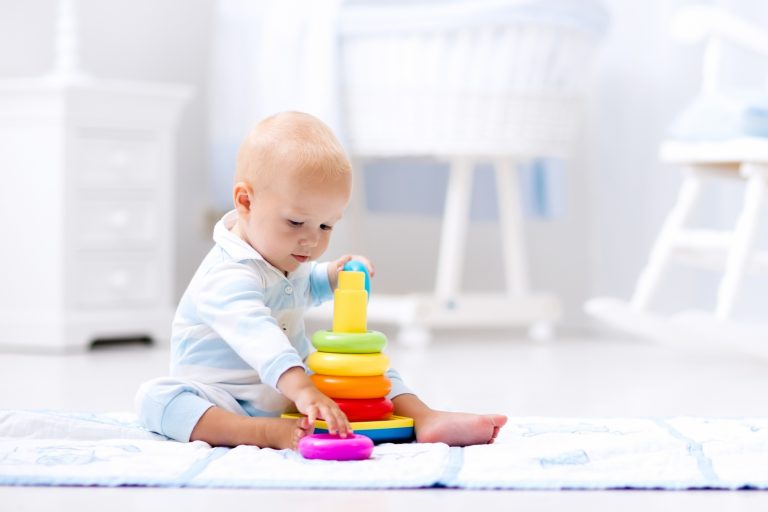The Breastfeeding Shop would like to share 10 ways to improve your baby’s brain power. At birth, your baby’s brain contains 100 billion neurons (as many as there are stars in the Milky Way)! During his first years, your child will grow trillions of brain-cell connections, called neural synapses.
The rule for brain wiring is “use it or lose it.” Synapses that are not “wired together” through stimulation are pruned and lost during a child’s school years. Although an infant’s brain does have some neurological hard wiring (such as the ability to learn any language), it is more pliable and more vulnerable than an adult’s brain. A toddler’s brain has twice as many neural connections as an adult’s, which is why it is so important to train their brain often and early!
When you provide loving, language-enriched experiences for your baby, you are giving his brain’s neural connections and pathways more chances to become wired together. In turn, he will acquire rich language, reasoning, and planning skills.
10 Ways to Improve Your Baby’s Brain Power
1. Give your baby a physically healthy start before he is born.
Stay healthy while you’re pregnant, and be aware that certain drugs can be destructive to your baby’s brain in utero. Many children who were drug-abused in the womb struggle with severe learning problems and suddenly act with unprovoked aggressive behaviors. Studies have also revealed that cigarette smoking during pregnancy causes lower fourth-grade reading scores.
2. Play games that involve the hands.
Playing Patty-Cake, Peekaboo, and This Little Piggy can help improve a baby’s brain power. Babies respond well to learning simple sequential games.
3. Choose developmentally appropriate toys.
These toys allow babies to explore and interact. Toys, such as a wind-up jack-in-the-box or stackable blocks, help your baby learn cause-and-effect relationships and “if-then” reasoning. If a baby stacks a big block on a smaller one, the top block falls off. If he successfully stacks a small block on a bigger one, he “wires in” the information.
4. Build trust by being attentive and focused.
Babies who are securely attached to you emotionally will be able to invest more life energy in the pleasures of exploration, learning, and discovery.
5. Sing songs.
You can sing songs like “Itsy Bitsy Spider” and “Ring-Around-the-Rosy.” The body motions and finger play will help your baby integrate sounds with large and small motor actions. Songs also enhance your child’s learning of rhythms, rhymes, and language patterns.
6. Make meals and rest times positive.
Say the names of foods out loud as your baby eats. Express pleasure as she learns to feed herself, no matter how messy the initial attempts may be. This will wire in good associations with mealtime and eating. Battles and nagging about food can lead to negative emotional brain patterns. And here are some tips for getting your baby to sleep.
7. Model empathic feelings for others.
Use “teachable moments” when someone seems sad or upset to help your toddler learn about feelings, caring, sharing, and kindness. The more brain connections you create for empathic responses and gentle courtesies, the more these brain circuits will be wired in. This helps not only with language and cognitive learning but with positive emotional skills, too!
8. Express joy and interest in your baby.
Let your body language, your shining eyes, your attentiveness to babbling and baby activities, and your gentle caresses and smiles validate the deeply lovable nature of your little one.
9. Use positive discipline.
Create clear consequences without frightening or causing shame to your child. If your toddler acts inappropriately, such as by hitting another child, get down to his eye level, use a low, serious tone of voice, and clearly restate the rule. Keep rules simple, consistent, and reasonable for your child’s age. Expecting a toddling baby not to touch a glass vase on a coffee table is not reasonable. Expecting a toddler to keep sand in the sandbox and not throw it is reasonable.
10. Set up a safe environment for your crawling baby or toddler.
Spatial learning is important, and your mobile child will begin to understand parameters such as under, over, near, and far. He will be able to establish mental maps of his environment and a comfortable relationship with the world in which he lives.





